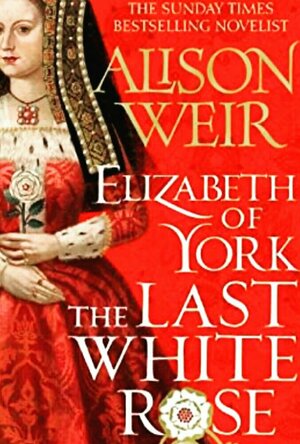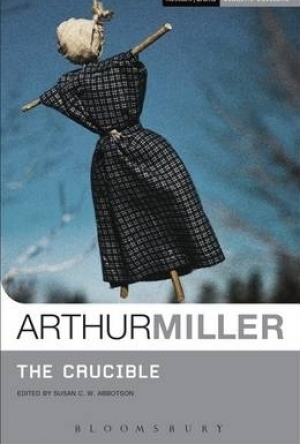ClareR (6062 KP) rated Elizabeth of York: The Last White Rose in Books
Mar 14, 2023
It’s 500 pages of history, with loads of details of what it was like to be a female royal during times of instability and unrest. Even for royalty it wasn’t a great time to be a woman. Only good for one thing: providing the next generation. But Elizabeth bucked that trend somewhat, and Weir makes the case for her having some influence with Henry VII. She was a literate, intelligent woman at a time where women weren’t always well educated. Her duty is always to her country and her family - and she had to play a dangerous game of keeping Richard happy whilst hoping that Henry would succeed. After all, she considers Richard responsible for the deaths of her brothers, one of whom was the true heir to the crown (but will we ever really know what happened to these boys?).
I really enjoyed this. I know from reviews I’ve read that some people believe it’s too long, but I can’t see how it could be made shorter and still make sense! There’s so much happening during Elizabeths lifetime: civil war, chopping and changing kings, backstabbing, family strife, births, deaths, marriages - the lot!
Three generations of royalty are covered wonderfully in this book, and I for one ate it up!
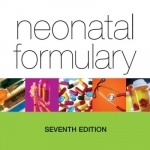
Neonatal Formulary: Drug Use in Pregnancy and the First Year of Life, 7th Edition
Medical and Health & Fitness
App
This Wiley - Blackwell app-book is developed by MedHand Mobile Libraries. Improve your performance...
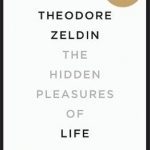
The Hidden Pleasures of Life: A New Way of Remembering the Past and Imagining the Future
Book
By the bestselling author of Conversation and An Intimate History of Humanity A guide to new...

Codependency For Dummies
Book
Your trusted guide to value yourself and break the patterns of codependency Codependency For...
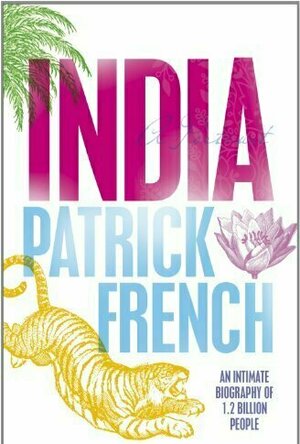
India - A Portrait
Book
One of this century's greatest surprises has been the economic and social revolution in India. A...
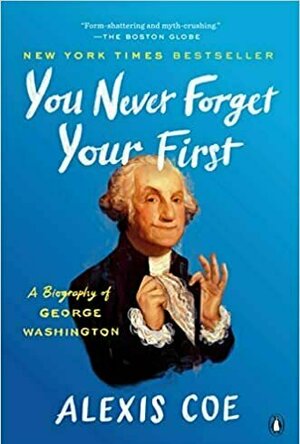
You Never Forget Your First: A Biography of George Washington
Book
AN INSTANT NEW YORK TIMES BESTSELLER AN NPR CONCIERGE BEST BOOK OF THE YEAR "In her...
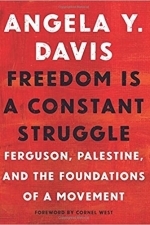
Freedom Is a Constant Struggle
Book
Activist, teacher, author and icon of the Black Power movement Angela Davis talks Ferguson,...
Essays Politics social issues
Becs (244 KP) rated The Crucible in Books
Oct 2, 2019
Reading these in school and then giving them a reread five years after graduating, has shown a new light onto these novels. And has made me appreciate them more as a whole compared to when I read them in high school. If you haven’t read many literary classics, I recommend starting with something by Arthur Miller or George Orwell. Yes, they may be a bit hard to get into at first, but give it time. That’s the key when reading any book!
The Crucible by Arthur Miller
Genre: Literary Classic, Historical Fiction, Plays, Drama
Synopsis: “I believe that the reader will discover here the essential nature of one of the strangest and most awful chapters in human history,” Arthur Miller wrote of his classic play about the witch-hunts and trials in seventeenth-century Salem, Massachusetts. Based on historical people and real events, Miller’s drama is a searing portrait of a community engulfed by hysteria. In the rigid theocracy of Salem, rumors that women are practicing witchcraft galvanize the town’s most basic fears and suspicions; and when a young girl accuses Elizabeth Proctor of being a witch, self-righteous church leaders and townspeople insist that Elizabeth be brought to trial. The ruthlessness of the prosecutors and the eagerness of neighbor to testify against neighbor brilliantly illuminate the destructive power of socially sanctioned violence.
Written in 1953, The Crucible is a mirror Miller uses to reflect the anti-communist hysteria inspired by Senator Joseph McCarthy’s “witch-hunts” in the United States. Within the text itself, Miller contemplates the parallels, writing, “Political opposition… is given an inhumane overlay, which then justifies the abrogation of all normally applied customs of civilized behavior. A political policy is equated with moral right, and opposition to it with diabolical malevolence.”
WIth an introduction by Christopher Bigsby.
Audience/ Reading Level: High School +
Interests: Plays, Drama, Witches, the Salem Trials, Arthur Miller, Literary Classics.
Point of View: Third Person Omniscient
Difficulty Reading: With every literary classic, you run into the problem of the first 30% of the novel being a bore or hard to get into. The Crucible was only a bore in parts but taking the novel as a whole, it was a pretty easy read.
Promise: “I believe that the reader will discover here the essential nature of one of the strangest and most awful chapters in human history.”
Insights: The Crucible is based on true events and Arthur Miller has a way of explaining everything that was wrong with the way people lived. I.E. Woman did not have rights until the early 1920’s. This didn’t stop some countries/states to still not allow the woman to have rights. But taking The Crucible into perspective, the women that were charged with witchcraft were unable to explain themselves to the men. The men believed the accusers either because they were sleeping with them or because they were their family. Luckily, nowadays we don’t have this extreme of situations but it still does exist. The Crucible teaches all of its readers, young or old, many valuable lessons that are sometimes hard to witness. Plus, Miller correlates the events in the Crucible to the anti-communist McCarthyism of the 1950s.
Favorite Quotes: “I speak my own sins; I cannot judge another. I have no tongue for it.”
“Because it is my name! Because I cannot have another in my life! Because I lie and sign myself to lies! Because I am not worth the dust on the feet of them that hang! How may I live without my name? I have given you my soul; leave me my name!”
“You are pulling down heaven and raising up a whore”
What will you gain: A love for another literary classic and a love for Arthur Miller if you do not already love his writing. Plus, a great historical read.
Aesthetics: The witches, the trials, the way people take sides, I mean I can’t say much more without giving spoilers away. We wouldn’t want that, now would we?
“It is rare for people to be asked the question which puts them squarely in front of themselves”
BookwormMama14 (18 KP) rated High As the Heavens in Books
Jan 2, 2019
"How in the midst of all this sorrow"...Can hope possibly be found?*
Kate's books continue to elicit emotions in me that I have rarely felt on such an excruciating level. Set in Belgium during WWI we live through the memories of our heroine. We walk with her through the heartache, the pain, the suffering, but also the joy. Evelyn Marche has seen her fair share of evil and sorrows, but as a nurse she is able to bring peace and comfort to those who are also suffering. Through her work, she is making a difference in more people's lives than she knows. I don't want to say TOO much about Eve's story, because I want you to read it! Be warned though...I was not even half way through and I thought I was going to puke, cry, and throw the book across the room.** THAT is how powerful Kate's words are. There were many times of laugh out loud moments, but this is a book set in a WAR ZONE.
While in the middle of reading this book, I had the opportunity to hear a WWII survivor speak. (I know, I know...different war...but a hero is a hero.) Her name is Marthe Cohn, she is 97 years old. Marthe is a French Jew who served as a spy in Nazi Germany during WWII. She was a nurse. She is a HERO. There are SO MANY PARALLELS to Eve in Marthe's story that it was kind of weird. Marthe was instrumental in bringing about the end of the war. I share this with you because I want to honor those who have served...in any war. Those who would risk their lives daily so that my family may live in peace. The heros who, without them, things could have ended so very different.
Evelyn is a strong and powerful representation of the many women who served in WWI. The heroes who cared for the wounded. The heroes that changed history one day at a time. Eve's independent spirit and tenacity has been an asset throughout the war. But living in "survival mode" can wear a person down. Will she continue fighting in her own strength or will she open her heart to God, and allow Him to carry her burdens? Although I have not seen the same horrors that Evelyn (and Marthe) were faced with, I hope that in the midst of chaos I will stand strong, be a light and do what I can to make the world a better place. To bring hope to those who have none.
*Quotation is from the song Days in the Sun found on the 2017 release of Disney's Beauty and the Beast.
** No books were harmed during the process of reading this book and writing the review.
I received a complimentary copy of High as the Heavens from Bethany House Publishers I was not required to write a positive review. All opinions expressed are mine alone.
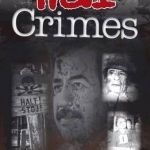
Crimes of the Century: War Crimes
Book
At the beginning of September 2013, top of the international agenda was to stop any further deadly...
